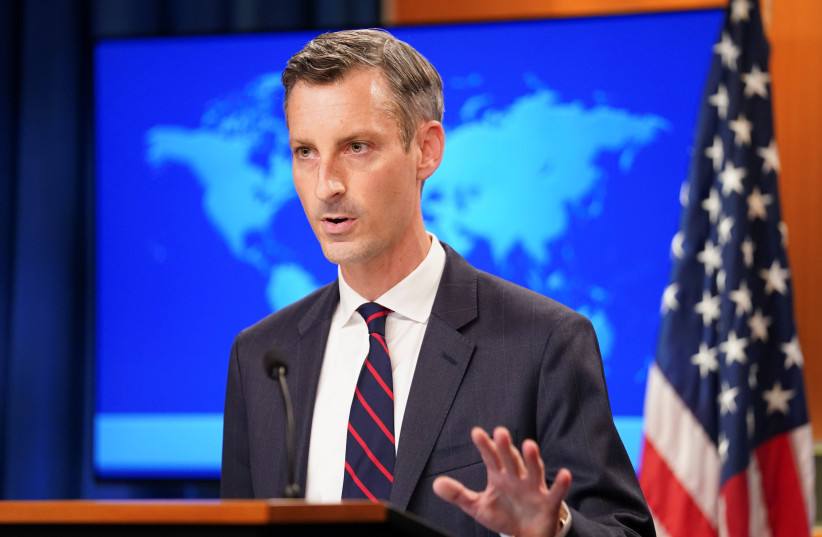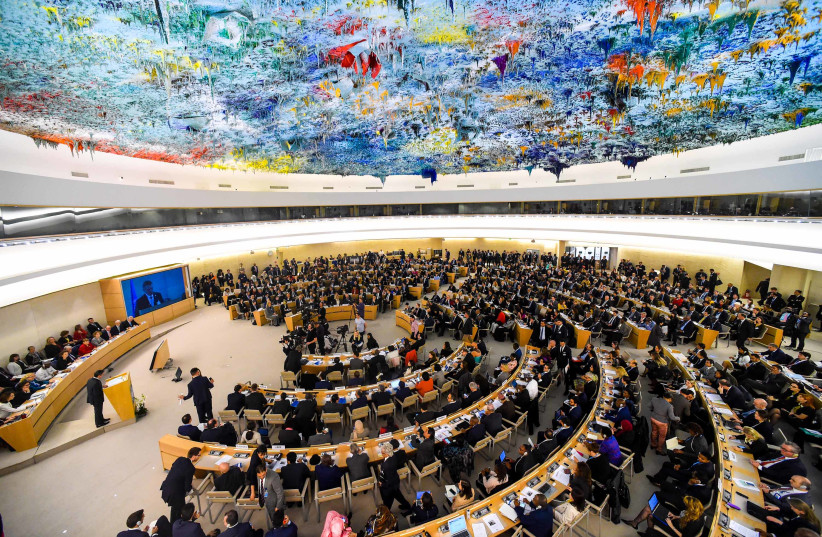The United Nations released a Commission of Inquiry that blamed Israel for the ongoing conflict with the Palestinians.

WASHINGTON – The US State Department responded on Tuesday to an initial report by the United Nations’ highly contentious Commission of Inquiry, which charged that Israel is largely to blame for its conflict with the Palestinians, saying that “the COI in its current form is a continuation of a longstanding pattern of unfairly singling out Israel”
“As we have stated repeatedly, we firmly oppose the open-ended and vaguely defined nature of the UN Human Rights Council’s (HRC) Commission of Inquiry (COI) on the situation in Israel, the West Bank, and Gaza, which represents a one-sided, biased approach that does nothing to advance the prospects for peace,” said Ned Price, the State Department Spokesperson.
“The report of the Commission, released today, does nothing to alleviate our concerns,” he added. “While the United States believes the HRC plays a crucial role in promoting respect for human rights and fundamental freedoms globally, this COI and report do not advance this goal.”
Price went on to say that Israel is the only country subject to a standing agenda item at the HRC, “and has received disproportionate focus at the HRC compared to human rights situations elsewhere in the world.”

“While no country is above scrutiny, the existence of this COI in its current form is a continuation of a longstanding pattern of unfairly singling out Israel,” Price said in a statement. “We reengaged with and later re-joined the HRC in part to be in a better position to address its flaws, including this one, and we will continue to seek reforms.”
The UN’s report
The UN report plans to focus in part on issues of discrimination by the Jewish state both within and without the country’s sovereign borders.
“The findings and recommendations relevant to the underlying root causes were overwhelmingly directed towards Israel, which we have taken as an indicator of the asymmetrical nature of the conflict and the reality of one state occupying the other,” Navanethem Pillay, who heads the three-member panel that conducted the probe, said. Pillay is the former UN High Commissioner for Human Rights.
The brief’s 18-page report by the UN’s “Independent International Commission of Inquiry on the occupied Palestinian territory, including east Jerusalem and Israel” posted on the UN website on Tuesday marks the first of what will be an annual report to the UN’s Human Rights Council in Geneva.
The report spoke of Israel’s actions in the West Bank, Gaza and East Jerusalem as a situation “in perpetuity,” noting that It was unlikely the situation would end without International intervention.
Price, in his response, said that the United States “remains deeply committed to helping achieve peace for both Israelis and Palestinians and will support actions in the UN that bring the parties together to advance prospects for peace.”
“The United States is committed to advancing human rights in Israel, the West Bank, and Gaza,” he added. “Israelis and Palestinians deserve equal measures of freedom, security, prosperity, and, importantly, dignity. Promoting human rights and fundamental freedoms is important in its own right and as a means of preserving and advancing the prospects of a negotiated two-state solution.”
As reported by The Jerusalem Post
